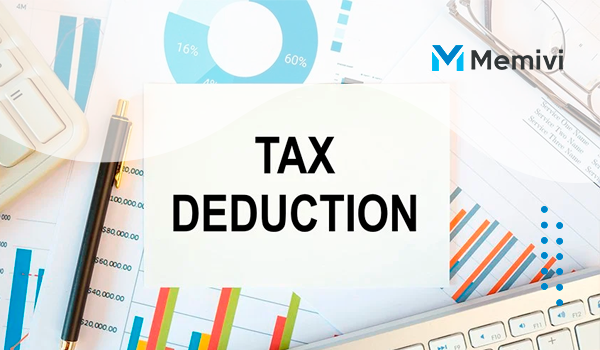
Being self-employed means you have more control over your time and your work. You also have more freedom and can pursue your passions. There are also many benefits to being self-employed, such as no boss, working in the field that you want, and the freedom of picking your own schedule.
Another benefit is that your company is a direct reflection of your skills, experience, and knowledge. You are the one who is responsible for building your company. You can have complete autonomy over your company, and that means you can choose when to retire. However, self-employment can also lead to stress, loneliness, and a lack of social connections.
Overview
Many people today are self-employed individuals. This can be a great way to make a living, but it can also be a challenge. This can be challenging because, in order to be successful in this field, you have to be able to run your own business. You have to be able to think on your feet. This means that you’re going to have to do a lot of things, including making decisions and overcoming obstacles.
If you are self-employed and you want to be successful, you will have to work harder than people who work for someone else. You will also have to earn a great reputation, know how to manage your time, and make sure that you are always working towards your goals.
What is a Self-Employment Tax?
A self-employment tax is the income taxation imposed on the self-employed person’s net income. It is a tax that is charged on the total income of an individual who is not an employee of an employer. The self-employment tax applies to individuals who derive any income from a trade, business, or profession that is not from salary or wages.
If a self-employed individual has a combined income of $147,000 – it is part of the Social Security Number self-employment tax. If the income increases up to $200,000, it will now also be part of Medicare tax.
Now, you don’t have to pay any taxes if the total income of your career if $400 annually. However, you are also not eligible for any Social Security credits unless you prefer to use the optional method.
How Business Tax Deductions Work?
Business tax deductions work because they are a way to reduce your tax bill. Tax deductions are allowed for a variety of different types of expenses that are incurred by a business. These expenses could be for things like office supplies, equipment, or even employee salaries.
In order to take advantage of these tax deductions, a business needs to keep track of their incurred expenses on a separate list. Then, they can go through this list and see the expenses that they can deduct from their total tax bill.
For example, if you’re using your car to drive to work every day, you can deduct the cost of gas. If you’re using your office space and equipment, you can deduct the cost of office supplies. Just make sure you have the evidence or receipt to be able to present it to the IRS.
Taxable Income Deductions for Self-employed Tax
When your business is your income, it can be hard to figure out which items you can deduct. The amount of money you take home is related to the amount of income that you make. This means that the amount of money you take home is also related to your taxable income, which is why it’s important to find out what you can deduct.
For example, you can deduct the cost of owning and maintaining your home. You can also deduct the cost of your personal clothing, car, telephone, and many other things. In order to do this, you must have an active self-employment and be making a profit. Here are six deductions that are available to self-employed individuals:
- Home Office Expenses
If you are a self-employed professional, you’ll likely want to make sure that you take advantage of home office expenses in order to reduce your taxable income to a lower amount. The IRS allows for deductions for home office expenses, including rent and utilities, as well as the necessary costs for a home office.
- Driving Expenses
Driving yourself to your business can be a very cost-effective way to save on your taxes, but it can also be a hassle and a time-consuming process so you may think about the investment you are doing here. If you are self-employed, you are able to deduct the cost of driving yourself to and from work as a driving expense. These expenses can be deducted on your personal income tax return, and if you are able to, they can help to reduce your tax liability.
- Retirement Savings Plan
Self-employed individuals are not exempt from the need to save for retirement. They are, however, allowed to deduct their retirement savings from their taxable income, which is in many cases substantially higher than the income of an employed individual. This makes retirement savings a great investment for self-employed individuals.
In order to qualify for the deduction, the self-employed individual must contribute to a retirement plan. This can take the form of a traditional 401k plan or a Roth 401k. Tax rules stipulate that the contributions must be made before the income is received. This means that the individual must make the contribution either as a pre-tax contribution or as an after-tax contribution, depending on the type of plan they are contributing to.
- Depreciation Expenses
Depreciation expense is a deduction for the amount of money used to maintain property. It is a work expense that can be deducted from the income of self-employed people.
There are two types of depreciation expenses for self-employed people. The first type is a capital cost allowance (CCA) that is a depreciation expense that is used to buy assets. The second type is a section 179 expense, which is a depreciation expense that is used to purchase property.
- Business Expenses
The cost of running a business is much higher than those of a standard employee. One of the largest costs of running a business is your taxable income. Fortunately, the IRS has created a number of deductions that you can take for the cost of running a business. It is important to note that this is not an exhaustive list of all possible expenses, just the ones that can help you save on taxes. In order to make sure that you are claiming every possible deduction, it is important to keep track of what expenses you are claiming – as well as its receipts.
The Importance of Reducing Your Self-Employment Taxes

If you’re self-employed, you’ll likely have to file your taxes with the IRS. However, there are many things you can do to reduce your self-employment taxes. By taking advantage of some of these deductions, you can make your self-employment taxes much lower.
The most common deductions for self-employed people are health insurance, retirement plans, and business expenses. If you don’t know what kind of expenses you could deduct, contact your CPA. They are happy to help you figure out which expenses you can claim.
Furthermore, self-employment taxes can be difficult to calculate and they are often overlooked when planning for retirement. Self-employment taxes are designed to fund Social Security and Medicare.
These taxes are not taken out of your paycheck. Instead, the self-employment taxes come out of the money you make from your business.
Final thoughts
It’s important to know the tax deductions that will help you in your effort to pay the least amount of taxes possible! This post was designed to help self-employed individuals know the most important deductions that they may be eligible for. We also provided a list of some commonly overlooked deductions so you can be sure to maximize your tax return this year. We hope you enjoyed our post about financial tax deductions for the self-employed.



 U.S. tariffs: Government of Canada announces next steps in its response plan <p class='sec-title' style='line-height: normal; font-weight: normal;font-size: 16px !important; text-align: left;margin-top: 8px;margin-bottom: 0px !important;'> The Government of Canada is taking decisive measures in response to the unjustified U.S. tariffs that have affected trade and economy. </p>
U.S. tariffs: Government of Canada announces next steps in its response plan <p class='sec-title' style='line-height: normal; font-weight: normal;font-size: 16px !important; text-align: left;margin-top: 8px;margin-bottom: 0px !important;'> The Government of Canada is taking decisive measures in response to the unjustified U.S. tariffs that have affected trade and economy. </p>  Canada Tariff: Trump confirms 25% tariff for the country <p class='sec-title' style='line-height: normal; font-weight: normal;font-size: 16px !important; text-align: left;margin-top: 8px;margin-bottom: 0px !important;'> Canada tariff policies significantly influence global commerce and economic trends. Understanding these tariffs is essential for businesses and policymakers alike. </p>
Canada Tariff: Trump confirms 25% tariff for the country <p class='sec-title' style='line-height: normal; font-weight: normal;font-size: 16px !important; text-align: left;margin-top: 8px;margin-bottom: 0px !important;'> Canada tariff policies significantly influence global commerce and economic trends. Understanding these tariffs is essential for businesses and policymakers alike. </p>  Everything You Need to Know about Credit Reports <p class='sec-title' style='line-height: normal; font-weight: normal;font-size: 16px !important; text-align: left;margin-top: 8px;margin-bottom: 0px !important;'> Learn how credit reporting works and how to use it to your advantage and what the benefits are for your Credit Score. Learn more. </p>
Everything You Need to Know about Credit Reports <p class='sec-title' style='line-height: normal; font-weight: normal;font-size: 16px !important; text-align: left;margin-top: 8px;margin-bottom: 0px !important;'> Learn how credit reporting works and how to use it to your advantage and what the benefits are for your Credit Score. Learn more. </p>